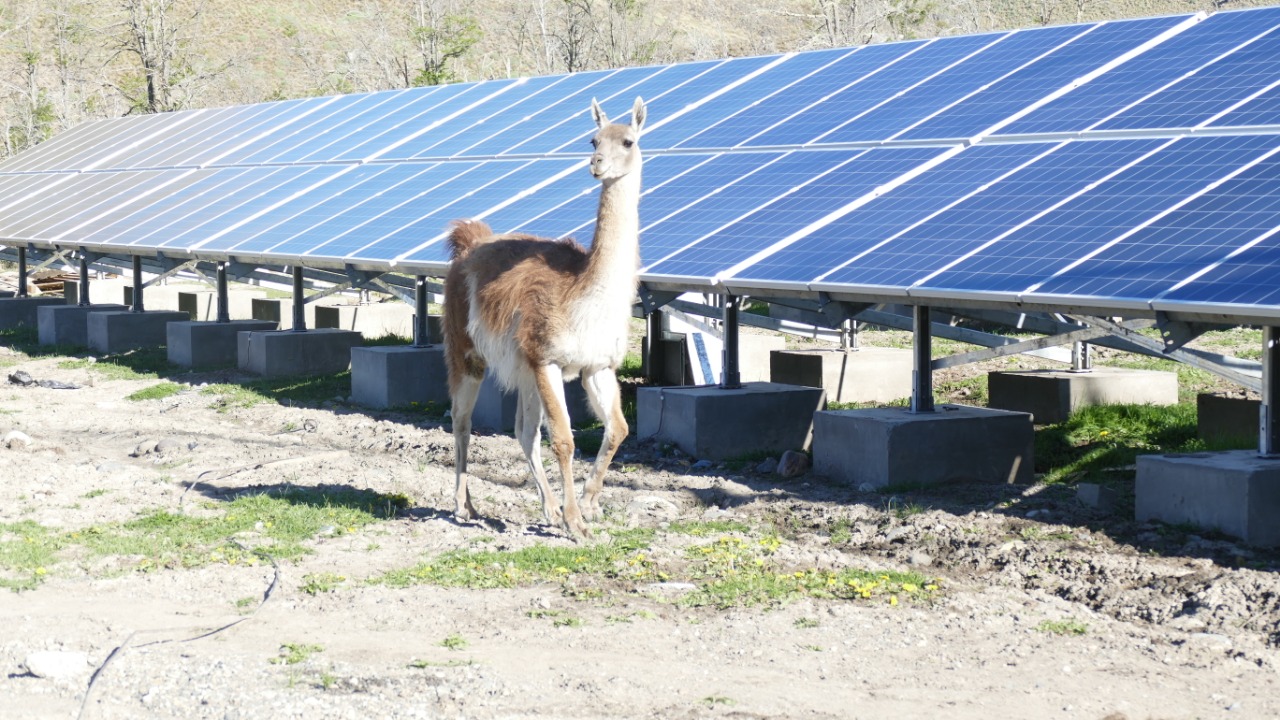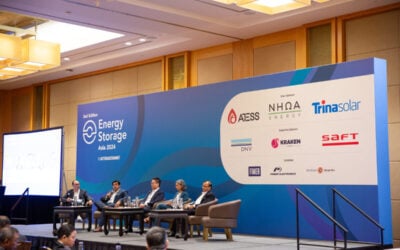
10 September 2020: Tesvolt supplies Patagonia National Park with battery for ambitious hydro-PV microgrid
A novel microgrid project combining run-of-river hydroelectricity, solar PV and battery storage has been built at Patagonia National Park, Chile.
The founder of rugged outdoor clothing outlet North Face and the former CEO of similar outdoorsy clothing company Patagonia are in fact a husband and wife team who founded the conservation project together.
Douglas and Kristine Tompkins moved to Chile around 30 years ago and established the National Park – among 15 such parks the pair helped fund and found in Chile and Argentina, protecting some 14 million hectares of land in the process.
Try Premium for just $1
- Full premium access for the first month at only $1
- Converts to an annual rate after 30 days unless cancelled
- Cancel anytime during the trial period
Premium Benefits
- Expert industry analysis and interviews
- Digital access to PV Tech Power journal
- Exclusive event discounts
Or get the full Premium subscription right away
Or continue reading this article for free
Two hydraulic turbines and a solar PV system with 115kWp of AC-coupled output in total have been paired up with a 144kWh battery energy storage system made and supplied by German company Tesvolt.
The solution replaces expensive and polluting diesel generators at the site. The project was planned and carried out by local installation company SyR Energia. Gonzalo Rodriguez, an engineer at SyR Energia said that combining the hydroelectric turbines with PV was “technically very demanding,” with the park located a long distance from the nearest connection to an electrical grid.
“We are very excited about the construction of the most advanced hydroelectric-solar microgrid in Chile which will continue to provide clean power for the park for many years to come. This alternative energy system minimises the park’s CO2 footprint and therefore contributes to the fight against climate change,” executive director of Tompkins Conservation Chile, Carolina Morgado, said.
8 September 2020: Azelio’s ‘recycled aluminium’ storage could help rural India’s communities
Thermal energy storage start-up Azelio has followed up a string of recently-signed agreements with partners in countries around the world with an agreement that could pave the way for a push into India.
The Swedish start-up’s technology solution stores energy as heat in recycled aluminium alloy, heated up to 600 degrees centigrade and then dispatched into a Stirling engine through a heat transfer fluid to generate electricity while the system can also dispatch the stored heat. The technology is currently undergoing testing by UL with a view to US market entry. Azelio claims it can be readily paired with solar, wind and other energy sources to offer heat and electricity “on demand around the clock”.
The company said a few days ago that it has signed a Memorandum of Understanding (MoU) with India-headquartered power generation company Atria Power. Under its terms, Atria Power could deploy up to 65MW of Azelio’s energy storage in India up to 2025.
As with other agreements Azelio has struck in different territories, this begins with small-scale commercial systems totalling just 100kW in 2021, then 12MW in 2023, 18MW in 2024 and 35MW in 2025. Atria would act as both project developer and system integrator on Azelio-supplied projects. Atria said that Azelio’s tech can offer zero emissions electricity, potable water through desalination and cooling capabilities for some of India’s rural villages and communities.
7 September 2020: Duke Energy picks Wärtsilä for EPC, energy management on battery projects
Duke Energy picked out Wärtsilä to perform engineering, procurement and construction (EPC) duties on three battery energy storage projects in North Carolina and Indiana.
The major energy holding company, which has both regulated utility and non-regulated project development divisions, has begun deploying battery storage, with Douglas Esamann, executive VP for energy solutions at Duke saying at the recent Energy Storage Association (ESA) annual conference that batteries will play a big role in the company’s business as well as its efforts to meet a decarbonisation plan in the coming years.
Wärtsilä said in a press release sent to Energy-Storage.news that in addition to EPC duties on Duke’s Asheville (8.8MW / 8.8MWh) and Hot Springs (4MW / 4MWh battery with 3MWdc of solar) in North Carolina, as well as the Crane (4.95MW / 4.95MWh) project in Indiana, Wärtsilä’s GEMS advanced energy management platform will be used across Duke’s battery storage and solar projects, both existing and new.
The GEMS platform has been an important piece of IP for Wärtsilä, which took on the platform along with US storage pioneer Greensmith Energy which the Finnish company acquired a couple of years ago. The platform offers real-time control and protection of the systems, the ability to stack revenues through performing multiple co-optimised applications, as well as fleet visibility capabilities.





